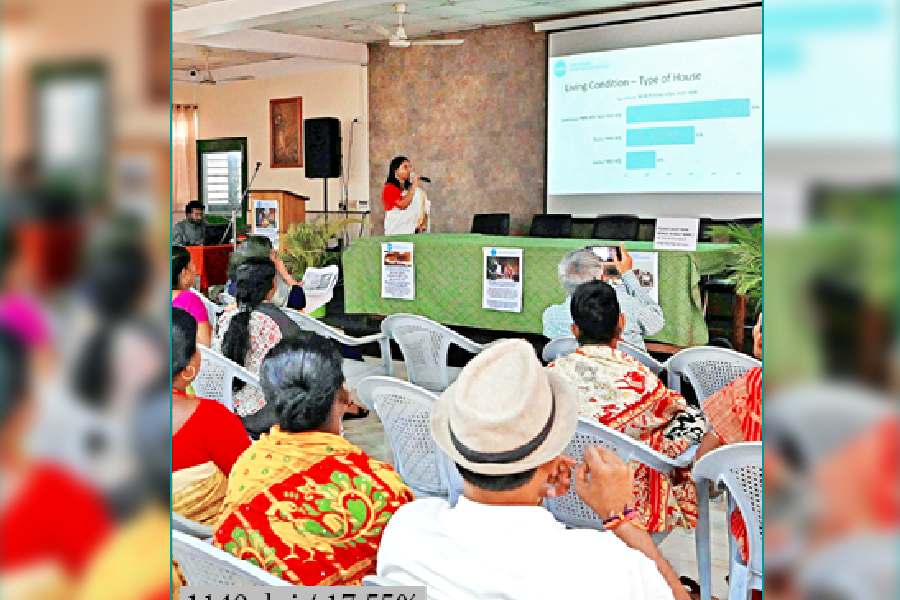A woman from South-24 Parganas works at construction sites in and around Calcutta. In peak summer, she tires sooner than usual and has to take multiple breaks. The eight-hour shift gets stretched to 10 or more.
Another woman who segregates waste at Dhapa said the stench becomes unbearable in the summer. After a spell of rain, the load of wet waste becomes much more than that of dry waste. Carrying a bag takes twice the effort.
A recent workshop in Calcutta focused on the impact of climate change on the lives and livelihood of informal women workers.
The findings of a study — for which over 100 people in the informal sector in and around Calcutta were interviewed — were shared at the workshop (see chart).
“We interviewed a variety of people, like construction workers, ragpickers, street vendors and domestic workers,” said Paramita Chowdhury, project coordinator with Indo-Global Social Service Society, the NGO behind the initiative.
Malati Sardar, from Gosaba in the Sunderbans, was working at a construction site in the South Dum Dum Municipality area when interviewed by Chowdhury’s team.
“In peak summer, we cannot work at a stretch and need frequent breaks. As a result, we often have to spend more than 10 hours doing the work we are supposed to finish in eight hours. But we do not get any extra money for the overtime, said Sardar who gets Rs 350 every day.
A male worker gets Rs 400 every day from the same contractor, Chowdhury said.
“But despite the exhaustion and gender bias, women like Sardar prefer coming to the city for work. In the village, they usually have to work on farmland. The pay is less than what they get here. On top of that, the women have to do all the household chores every day. Life in the village is much more exhausting. When they are working in the city, other members of the family do some of the household chores,” said Chowdhury.
Sardar spends close to eight months a year working in and around Calcutta.
Phulan Das, a ragpicker who spends hours segregating waste at Dhapa, has different challenges with heat and rain.
“In the heat of the summer, the stench of the waste becomes unbearable. After a spell of heavy rain, the waste becomes much heavier to carry,” Das said.
Almost the entire biodegradable waste generated in Calcutta is dumped at Dhapa. Das said she often has to climb the height of a two-storeyed building to reach the top of the pile.
“In monsoon, we face a loss of income because we can carry less waste every day,” said Das.
A domestic worker told the interviewers that she does not drink much water while cooking at her employers’ home. “I get thirsty but still drink as little water as I can. Because I am not allowed to use their washroom,” she said.
The March 13 workshop was attended by some of the women working in the informal sector, representatives from civil society organisations, government officials, architects and climate change researchers.
“The effect of the climate crisis is visible globally. In India, as per labour force survey (2017-18), around 85.5 per cent of total employment is in the informal sector, exposed to the adverse effects of increasing temperature, frequent heat waves and violent storms,” the organisers said.
The world is now warming faster than at any point in recorded history. Warmer temperatures over time are changing weather patterns and disrupting the usual balance of nature.
“The needs and workload of women workers are different from men and their issues must be addressed differently,” said Proshin Ghosh, thematic lead, Climate Change Adaptation, Indo-Global Social Service Society.
The joint labour commissioner of Bengal, Manisha Bhattacharya, spoke about the scheme for the informal workers named Bina Mulye Samajik Suraksha Yojana. “One crore and thirty lakh people are already enrolled,” she said.
A professor at IIEST Shibpur, Souvanic Roy, said: “Urban planning should be able to accommodate the issues and concerns of the informal workers”.
